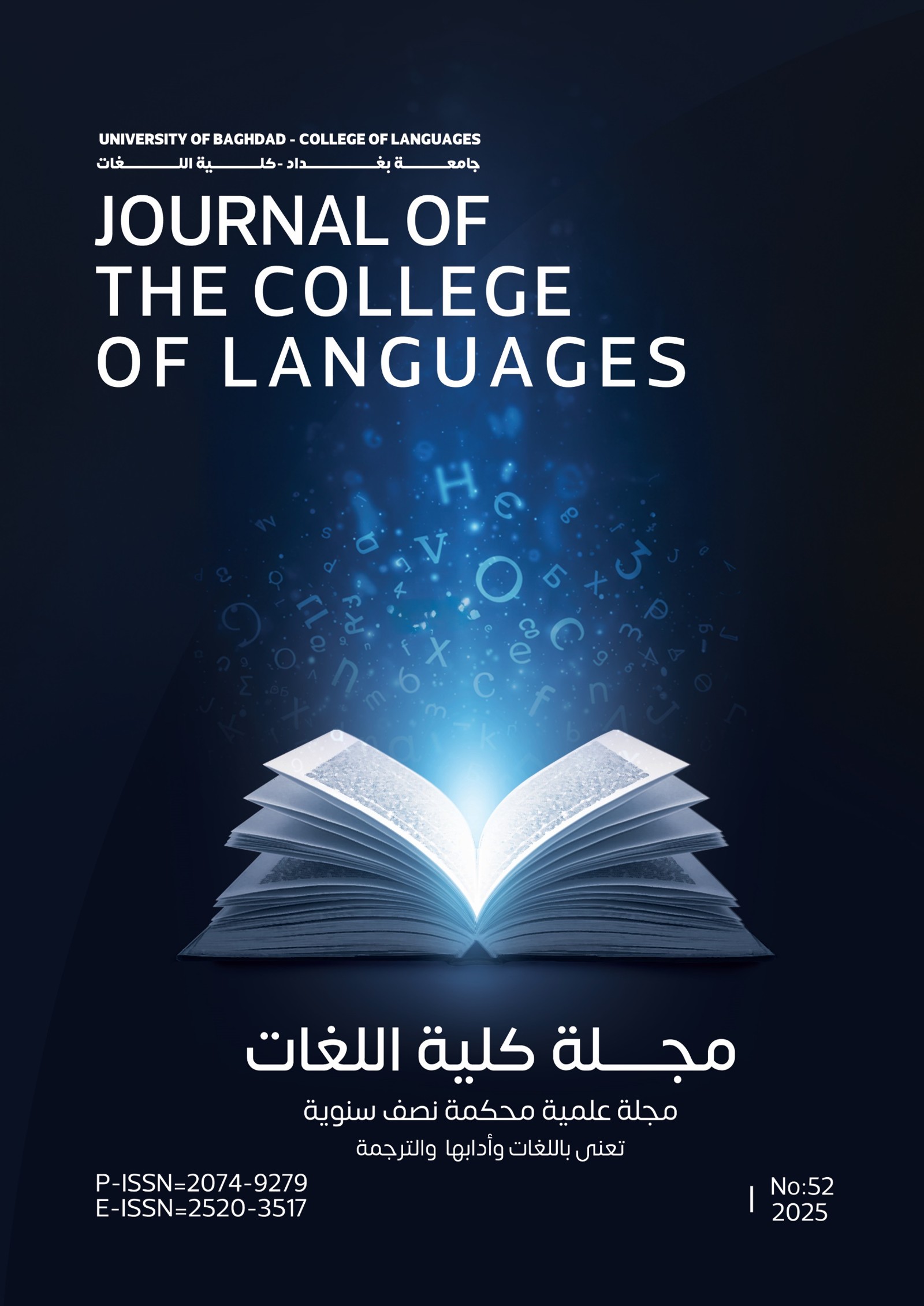Speech Act of Request :A Contrastive Study Between EFL And ESL Undergraduate Students
DOI:
https://doi.org/10.36586/jcl.2.2024.0.50.0033Keywords:
Malaysian student, power, request modifier, request strategy, Saudi student, social distanceAbstract
This study explored the English request strategies and modifiers used by Malaysian and Saudi undergraduates. It also investigated the influence of social power and social distance on their choice of those strategies. Fifty Malaysian ESL and fifty Saudi EFL undergraduates participated in it. A discourse completion task was used to collect the data. Blum-Kulka et al.'s (1989) taxonomy was used to analyse request strategies and Martinez-Flor and Uso-Juan’s (2006) taxonomy was used to analyse request modifiers. Data was collected and analyzed quantitatively. The findings revealed that pragmatic competence varied according to context. Malaysian students in an English as a second language environment used more Conventionally Indirect request strategies than Saudi students did in an English as a foreign language environment. Non-Conventionally Indirect strategies were not used by Malaysians and were employed least often by Saudis. Social status and social distance had no significant influence on their use of request strategies. The study concluded by providing implications for English teachers to foster pragmatic competence among undergraduate students.
References
Barron, A. (2003). Acquisition in interlanguage pragmatics: Learning how to do things with words in a study a broad context. John Benjamins.
Konakahara, M.(2011) Request in Japanese learner’s English in comparison with British English and Japanese. Journal of Higher Education Studies. Waseda University, 245-285.
Lee, Y. (2011). Comparison of politeness and acceptability perceptions of request strategies between Chinese learners of English and native English speakers. International Journal of Language Studies, 5 (3), 27- 44. https://doi.org/10.5539/ass.v7n821
Heidari, N. A. (2013). A Cross-cultural study on refusal strategies between Australian native speakers and Iranian EFL learners. TESOL Journal, 8(1), 46-69.
https://tesol-international-journal.com/wp-
Melati, M., & Triyana, N. (2016). An analysis of students’ sociocultural competence in delivering suggestion speech act. Advances in Social Science. Education and Humanities Research. 82, 116-121.
https://doi.org/10.2991/conaplin-16.2017.25
Zhu, W. (2012). Modal verbs for politeness in email requests to professors: The case of Chinese EFL learners. The Asian EFL Journal Quarterly, 14(1), 100-141.
Taguchi, N. (2014). Personality and development of second language pragmatic competence. The Asian EFL Journal Quarterly, 16(2), 203-221.
Yassin, A. A., & Abdul Razak, N. A. (2018). Request Strategies: A Contrastive study between Yemeni EFL and Malay ESL secondary school students in Malaysia. Asian Social Science, 14(12), 29-40.
https://doi.org/10.5539/ass.v14n12p29
Tawalbeh, A., & Al-Oqaily, E. (2012). In-directness and politeness in American English and Saudi Arabic Requests: A cross-cultural comparison. Asian Social Science, 8 (10), 85-98. https://doi. org/10.5539/ass.v8n10p85
Abdul Sattar, H. & Farnia, M. (2014). A cross-cultural study of request speech act: Iraqi and Malay students. Applied Research on English Language, 3 (2), 35 54.
https://doi.org/10.22108/are.2014.15486
Al-Otaibi, S. M. (2015). Saudi EFL students’ knowledge in pragmatics-Making requests. Arab World English Journal, 6 (2), 302-3015. https://dx.doi.org/10.24093/awej/vol6no2.23
Daskalovska, N., Ivanovska, B., Kusevska, M., & Ulanska, T. (2016) The use of request Strategies by EFL Learners. Procedia - Social and Behavioral Sciences, 232. pp. 55-61. https://doi.org/10.1016/j.sbspro.2016.10.015
Brown, P. & Levinson, S. C. (1987). Politeness: Some universals in language use. Cambridge University Press.
Austin, J. L. (1965). How to do things with words. Oxford University Press
Searle, J. (1975). Indirect speech acts. In P. Cole, & J. Morgan (Eds.), Syntax and Semantics3: Speech acts (pp.59-82). Academic Press.
Hatch, E. (1992). Discourse and Language Education. Cambridge University Press.
content/uploads/2013/12/TESOL%20Journal%20Volume%208%202013.pdf
Trosborg, A. (1995). Interlanguage pragmatics: Requests, complaints and apologies. Mouton de Gruyter.
Blum-Kulka, S., House, J., & Kasper, G. (1989). Cross-cultural pragmatics: Request and apology. Albex Publisher Corporation.
Martinez-Flor, A. & Uso-Juan, E. (2006). Learners' use of request modifiers across two university ESP disciplines. Eberica 12, 23-41.
https://www.redalyc.org/articulo.oa?id=287024009003
Sifianou, M. (1999). Politeness phenomena in England and Greece: A cross-cultural perspective. Oxford University Press.
Scollon, R., Scollon, S., & Jones, R. H. (2012). International communication: A discourse approach (3rd. ed.). Blackwell.
Nurani, L. M. (2009). Methodological issues in pragmatic research: Is discourse completion test a reliable data collection instrument. Sosioteknologi Journal, 17 (8), 667-678.
https://journals.itb.ac.id/index.php/sostek/article/view/1028
Weizman, E. (1993). Interlanguage requestive hints. In G. Kasper & S. Blum-Kulka (Eds.), Interlanguage Pragmatics (pp. 123-137). Oxford University Press.
Wachuku, U-N. (2017). Interlanguage Request Production of Nigerian Learners of English as a Second Language. NewTrends and Issues Proceedings on Humanities and Social Sciences [Online]. 03, 94-103.
Downloads
Published
Issue
Section
License
Copyright (c) 2024 Journal of the College of Languages (JCL)

This work is licensed under a Creative Commons Attribution 4.0 International License.








